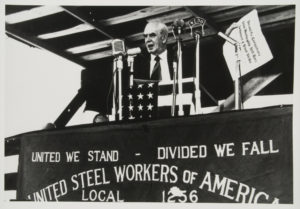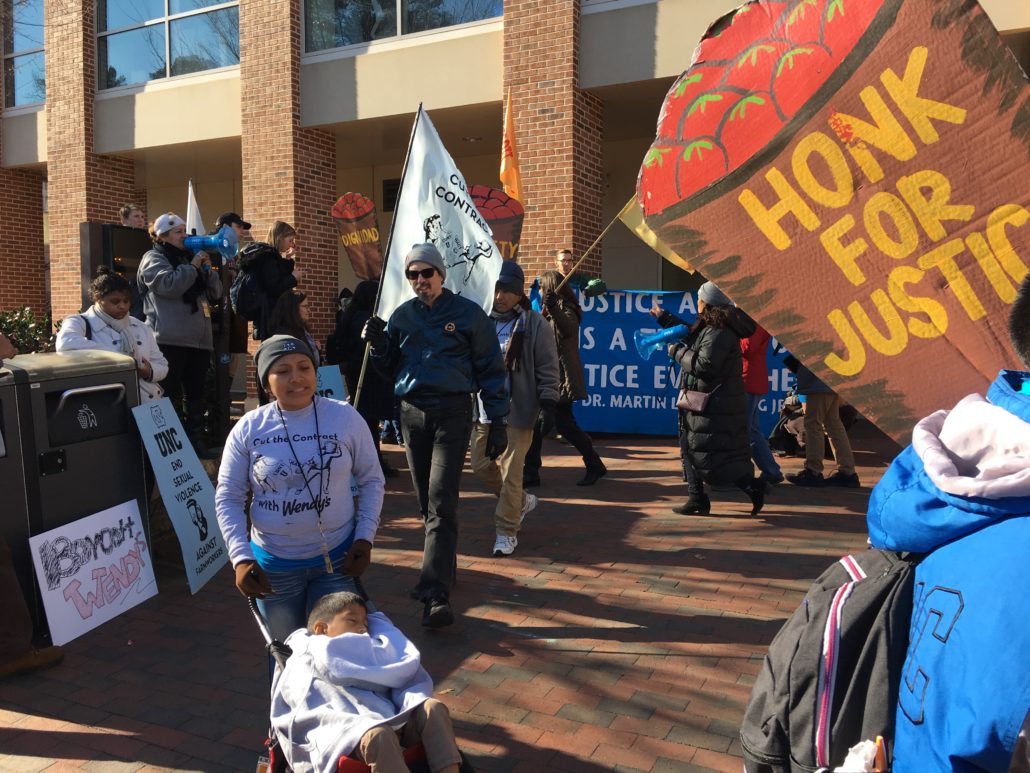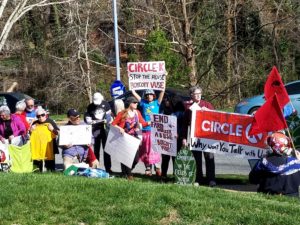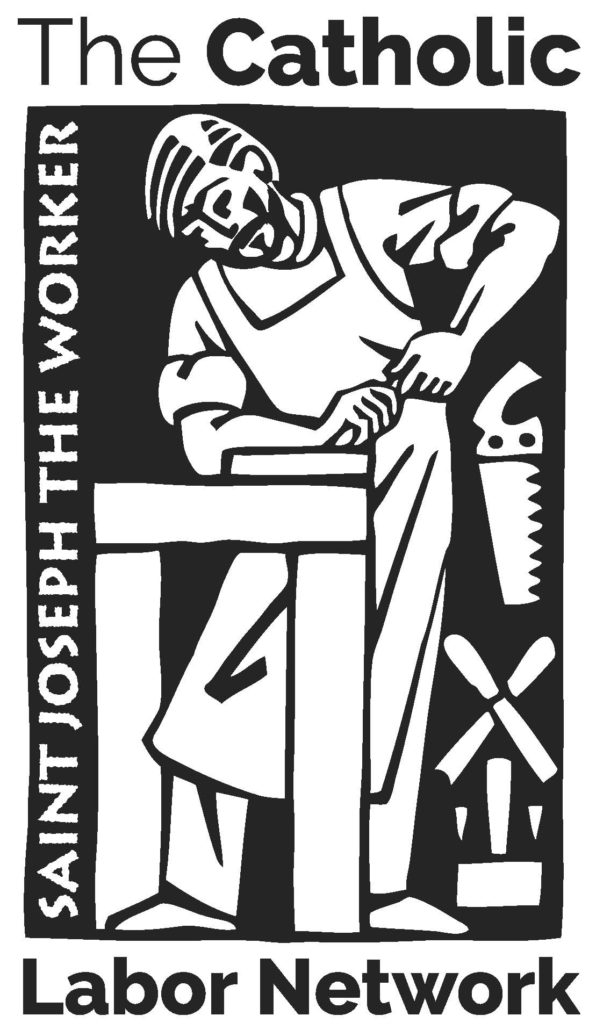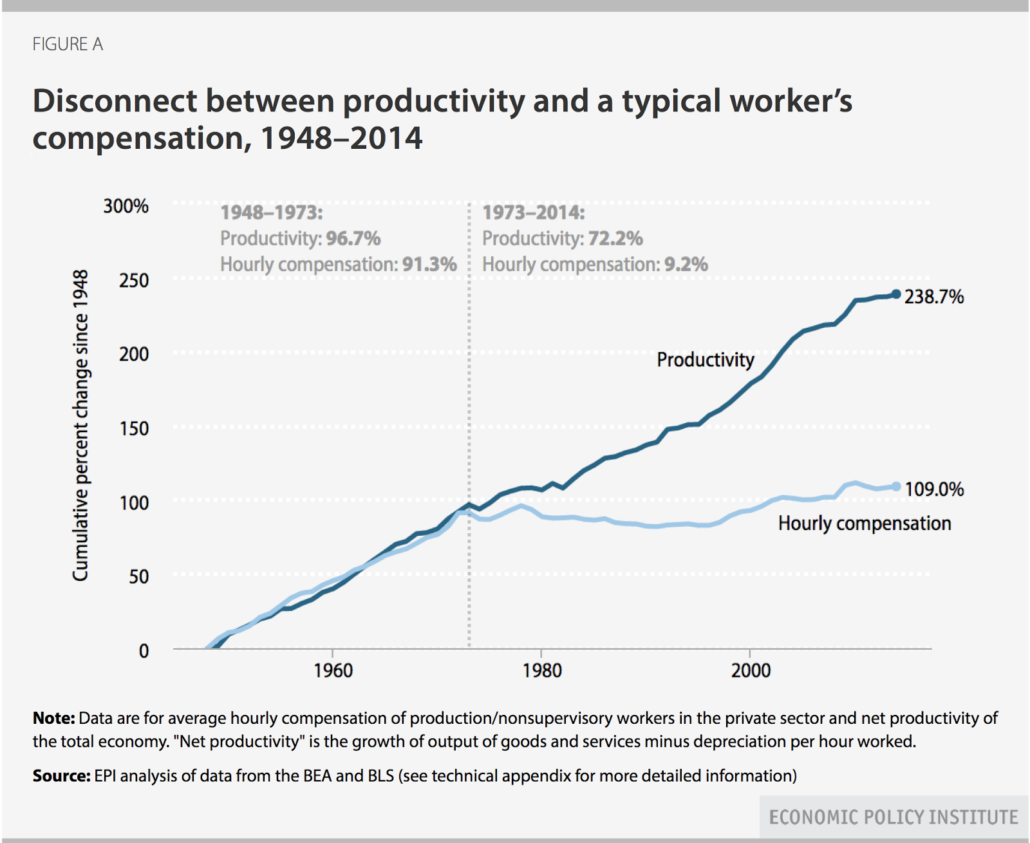Short Subjects – Top 10 Recent Labor-Church Stories
There’s been a lot of news this Spring at the intersection of Church and Labor! Here are some highlights….
- Georgetown Professor (and CLN Board Member) joined colleagues to write about the need for Bargaining for the Common Good. McCartin is promoting union bargaining that incorporates community member input in this CCHD-supported initiative. Check out Why the Labor Movement Has Failed—And How to Fix It in the Boston Review.
2. It’s been a bad month for Uber. My Kalmanovitz Initiative colleague Katie Wells released a report based on interviews with DC-area Uber drivers. The report found that the formula for driver reimbursement was so complicated that drivers couldn’t figure out what they were making; that many lived in poverty; and that many fell into a “debt trap” to lease or service their vehicles. Meanwhile, documents filed for Uber’s IPO shined light on the fact that even with an army underpaid drivers Uber is losing money and this is likely to continue for the foreseeable future. No wonder many Uber drivers went on strike on May 8. UPDATE: Life just got even harder for Uber drivers and other “gig workers.” The National Labor Relations Board has just decided that these workers are independent contractors rather than employees, meaning that they have no legally protected right to join a union.
3. At Mercy St. Vincent Hospital in Toledo, nearly two thousand nurses and techs represented by the UAW have been on strike for more than a week. The two sides are stuck on employee health care premiums and the amount of time hospital workers are expected to be available for “on-call” work assignments.
4. Once again, a bill is before the New York state legislature to give farmworkers the right to organize in unions and bargain collectively. Once again, the Church in New York is supporting the move. Will it finally happen?
5. Did they really say that? Ramp workers at Delta – one of America’s most stubbornly anti-union airlines — are getting ready to vote on union membership in the International Association of Machinists (IAM). Delta’s communication team has posted signs saying “Union dues cost around $700 a year. A new video game system with the latest hits sounds like fun. Put your money towards that instead of paying dues to the union.” Now I’m no HR expert, but I suspect that talking to your employees as if they were children may be counterproductive here.
6. Meanwhile in the Vatican, Pope Francis spoke out on unemployment for the Feast of St. Joseph the Worker (May 1)
7. Workers at the Baltimore Marriott Waterfront hotel voted 70-51 to form a union and join UNITE HERE Local 7. Marriott management kept union supporters under strict surveillance and held mandatory employee meetings to intimidate union supporters, but they held out. Church solidarity may have helped. The Catholic Labor Network organized a prayer service for the workers and addressed a letter to the hotel’s general manager expressing concern about the workers’ charges. More importantly, Auxiliary Bishop Denis Madden and Fr. Ty Hullinger visited with the workers to hear their stories.
8. Did they really do that? Volkswagen workers in Tennessee have filed for a union election. This would be a big deal; while the domestic auto plants of the West Coast, Midwest, and Northeast are union, none of the foreign transplants building Hondas, BMWs and Toyotas in the South are organized. Volkswagen was famous – until now – for its cooperative labor relations worldwide. Volkswagen is not just telling workers they shouldn’t form a union – they brought in Tennessee Governor Bill Lee to tell workers they shouldn’t join a union!
9. Did you know that one of the founders of the anarchist IWW (Industrial Workers of the World) was a rabble-rousing Catholic priest? To learn about the life and career of Fr Thomas Hagerty, check out Dean Detloff’s story in Commonweal.
10. Health care workers’ right to religious liberty means they cannot be required to provide services that violate their conscience, such as birth control or sterilization. The Department of Health and Human Services (HHS) issued the long-awaited rule on May 2.

